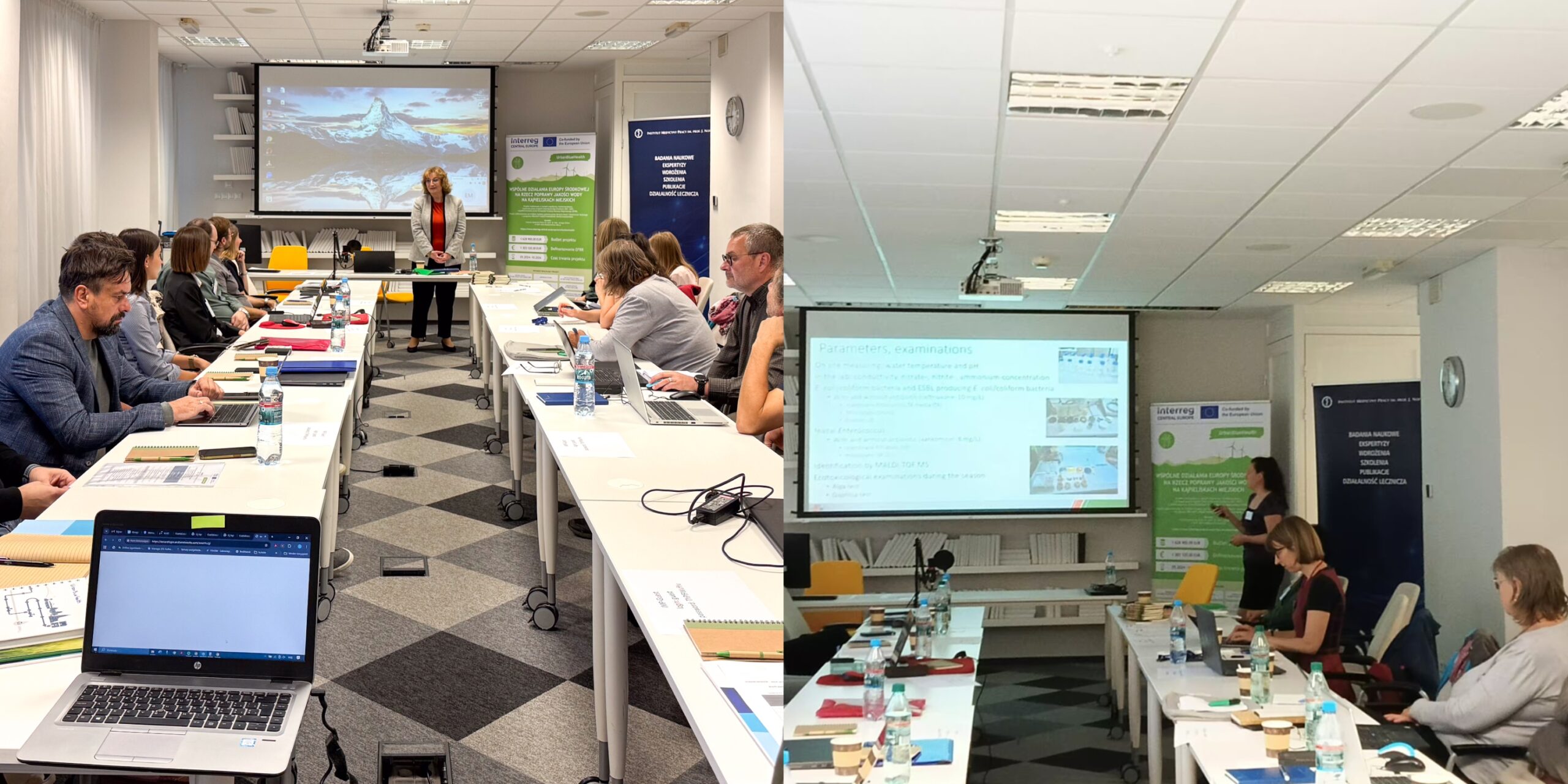UrbanBlueHealth 3rd Project Partners Meeting and Transnational Workshop in Łódź – Day 1
On 24–25 September 2025, partners of the UrbanBlueHealth project met in Łódź, Poland for the 3rd Project Partners Meeting and Transnational Workshop. Hosted by the Nofer Institute of Occupational Medicine, the event brought together all partners to present pilot activities, share results, and plan joint strategies.
Opening
- Prof. Jolanta Walusiak-Skorupa (Head of the Nofer Institute of Occupational Medicine) officially opened the meeting.
Introductory presentations
- Dr. Zbigniew Kaczkowski (University of Łódź) → Challenges with small shallow water bodies used as bathing sites.
- Dr. Jerzy Kupiec (Poznan University of Life Sciences) → Problems caused by large-scale agriculture, stressing eutrophication and nitrogen pollution as major threats to Polish freshwater ecosystems.
Pilot activities and results
- Hungarian partners → Addressed increasing occurrence of Vibrio cholerae in bathing sites (linked to rising salinity from hotter summers). Presented a new method for detecting E. coli using membrane filtration.
- Polish partners → Pilot activities at the Stefański Ponds. Installed a water oxidation device: prevented cyanobacterial blooms → bathing site remained open in 2025. Tested monitoring probes: biofouling (periphyton-algae) disrupted measurements, unsuitable for stagnant waters.
- Croatian partners → Installed probes and a meteorological station in Osijek. Collected data on physical-chemical parameters and weather. Results presented by dr. Magdalena Ujević Bošnjak.
- Czech partners → Demonstrated the use of the Copernicus satellite system to monitor algal blooms in natural bathing waters.
- Austrian partners → Introduced water quality monitoring methods for the Danube Canal bathing site. Highlighted challenges in categorising and monitoring small artificial ponds used for swimming.
Afternoon session
- Joint SWOT analysis introduced by dr. Magdalena Ujević Bošnjak, incorporating inputs from all project partners.
Conclusions of Day 1
- Pilot activities confirmed the validity of adopted solutions.
- The water oxidation method in Poland proved especially successful.
- The SWOT analysis will be the foundation for the joint Action Plan.
- Day 2 will focus on future obligations and planning.
